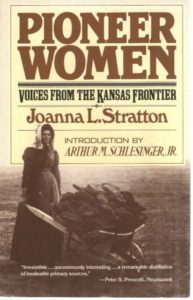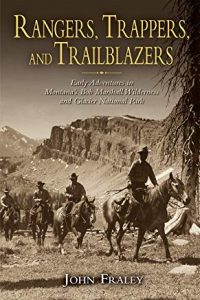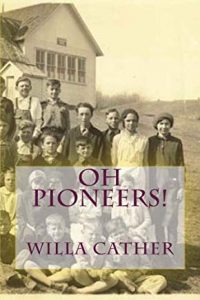Yesterday I picked up Pioneer women: Voices from the Kansas Frontier, by Joanna L. Stratton. It’s a study of the challenges met by frontier settlers, wives and mothers who lived on America’s open prairies in the late nineteenth century. Because I’ve been reading Willa Cather of late and noted isolation threaded through her work, I went straight to Stratton’s index and looked up ‘loneliness.’

Stratton writes of the woman left to maintain and protect the family homestead when a husband had to be away for long periods. “In those lonely circumstances, she fought the wilderness with her own imagination, skill, common sense and determination.”
Stratton also describes how one woman, when overwhelmed by the vast unbroken prairie, went out to stretch out on the earth among her sheep to find comfort in their company. But animals weren’t always a source of solace. A mother and son came under siege by gray wolves during a time when they’d taken in a sick woman to be nursed at their sod house. Hungry wolves tried to get in through windows, door frames, and by scratching through sod walls. Only shooting guns and wielding axes kept the predators out.
Women and men became lonely for familiar things as well as people. Stratton recounts one woman who asked to accompany her husband on a trip of some miles to get wood, “She hadn’t seen a tree for two years, and when they arrived at Little River she put her arms around a tree and hugged it until she was hysterical.”
 I’ve also recently dipped into John Fraley’s latest book, Rangers, Trappers, and Trailblazers: Early Adventures in Montana’s Bob Marshall Wilderness and Glacier National Park. His chapter on Lost Paola Ranger Station intrigued me because it’s about a couple who married in 1923. They set up housekeeping in Glacier National Park. “‘Well, Paula was considered a very isolated station,’ Clyde noted in an interview much later.”My wife didn’t see any women for several months.’” Marie took the train to Kalispell for the births of their first two sons. Otherwise, the family stayed at the ranger station full time and year round.“Busy on patrols, Clyde said he never got lonely. But he suspected that Marie did.”
I’ve also recently dipped into John Fraley’s latest book, Rangers, Trappers, and Trailblazers: Early Adventures in Montana’s Bob Marshall Wilderness and Glacier National Park. His chapter on Lost Paola Ranger Station intrigued me because it’s about a couple who married in 1923. They set up housekeeping in Glacier National Park. “‘Well, Paula was considered a very isolated station,’ Clyde noted in an interview much later.”My wife didn’t see any women for several months.’” Marie took the train to Kalispell for the births of their first two sons. Otherwise, the family stayed at the ranger station full time and year round.“Busy on patrols, Clyde said he never got lonely. But he suspected that Marie did.”
Eventually, when Clyde was reassigned to Two Medicine station, Marie was able to live in a house in East Glacier near women both ordinary and colorful. She never again lived far from the company of other women in a place as remote as Paola Ranger Station.
Willa Cather writes about the Nebraska prairie and the people, a mix of Swedish, Bohemian, French, and German who settled there beginning in the 1870s. O Pioneers, the first novel in her Prairie Trilogy, tells of Alexandra, a strong woman with the appearance of a Swedish goddess. The oldest and smartest child in the family, she has to take on the responsibility of making their farm prosper after her father’s early death. She has a love for the land, and the foresight and organizational ability to make it productive.
 Alexandra has everything by the time she is in her prime, everything but soul mates. The dull and bigoted, including her brothers, have no appeal for her. She acknowledges her loneliness, but copes until there are at last, not just people around her, but enough of them so she finds one who is a soul mate.
Alexandra has everything by the time she is in her prime, everything but soul mates. The dull and bigoted, including her brothers, have no appeal for her. She acknowledges her loneliness, but copes until there are at last, not just people around her, but enough of them so she finds one who is a soul mate.
Loneliness visited women who settled the frontier in mountains and prairies. They used all the qualities and techniques they could summon to survive. They valued those who eventually joined them and shared their stories.





